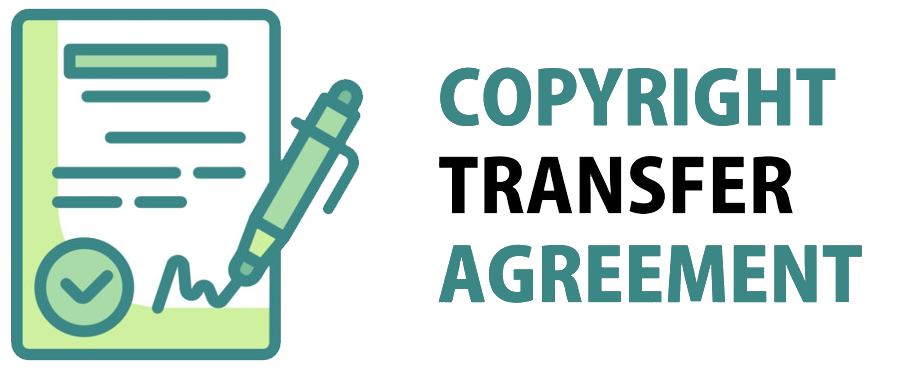Potential and Role of Zakat on Improving The Welfare of Small Medium Enterprises (Case Study on Balai Bina Mandiri Medan Denai)
Abstract
Balai Bina Mandiri Denai is a Micro, Small and Medium Enterprise (UMKM) as one of the programs to realize Zakat funds originating from the Medan Zakat House. This program is the embodimentSmile Mandiri, which is a local-based economic empowerment program for underprivileged communities with the aim of reducing poverty through entrepreneurship. The purpose of the research on Balai Bina Mandiri Medan Denai is to find out how the Potential and Role of Zakat on MSMEs at Balai Bina Mandiri Medan Denai is. This research was conducted using descriptive qualitative research by the researcher, which is expected to be able to determine the potential and role of the Zakat Fund on the welfare of MSMEs at Balai Bina Mandiri Medan Denai. From the results obtained by the researchers, the potential that comes from Rumah Zakat itself is very promising for the MSMEs of the Medan Denai Center for Mandiri Development. And the role of Zakat in the Bina Mandiri Medan Denai hall is very instrumental to them. They can get a profit of Rp. 350,000.00, - up to Rp. 500.000,00,-. per day. With a variety of products sold..Based on research results show that with the Mandiri Smile Program from Rumah Zakat, and with the establishment of Balai Bina Mandiri Denai, it plays a very big role in providing additional funds to meet their household needs.
Keywords
Full Text:
PDFReferences
A, Sarwat Lc, MA 2019. Indonesian Jurisprudence Encyclopedia 3: Zakat. grammar Main Library.
Arikunto Suharsini, 2000. Research Management. PT RIneka Cipta, Jakarta
Ministry of Religion of the Republic of Indonesia, Mohammad Imran Qasmi, Translated Al-Qur'an, Jakarta, 2010, Edition 1
Ekawary, Marlina and Miftahul Khairani. Productive Zakat and Its Role in the Development of MSMEs (study at LAZ el-Zawa UIN Maulana Malik Ibrahim, Malang
Fahmi, Irham. 2013. Entrepreneurship: Theory, Cases and Solutions. Bandung: Alphabet.
Fatchur, Rohman et al. 2017. Analysis of the Potential of MSME Zakat through BAZNAS for Improving the Welfare of the Jepara Society. ShieldVol 1 (3)
Hani, Umi. 2015. Analysis of the Equal distribution of Zakat to
Asnaf Zakat According to the Opinion of Imam Shafi'i. Al-Iqtishadiyah : Sharia Economics and Sharia Economic Law (E-Journal) Volume 2
Hasbi-Al and Muhammad Bagir. 2009. Practical Fiqh: According to the Qur'an, As-
Sunnah and Opinions of the Scholars.Bandung: Mizan IKAPI Member
Marliyah, Mudharabah Financing Strategy for Micro, Small and Medium Enterprises (MSMEs) Case Study of Sharia Banking in North Sumatra, Dissertation, Doctoral Program, State Islamic University of North Sumatra, 2016
Marimin, and Tiara, et al. Professional Zakat (Zakat Income) According to Islamic Law, Scientific Journal of Islamic Economics 1, Vol 01, March 2015
Patlima, Hamid. 2013. Qualitative Method. Bandung : Alphabeta.
Purba, Agustina Yenti et al, Effect of Capital, Work and Use of E-commerce Applications (Shoptimize) on MSME Income in Medan City, Journal of Islamic Circle, Vol.2 No.2 December 2021
Qadir, Dr Abduraman. 2001. Zakat (In Mahdhah and Social Dimensions). PT Raja Grafindo Persada Cet.2 : Jakarta.
R, Fred and David. 2006. Management Strategy: concepts. Jakarta:Gramedia Group INDEX.
S, Fadilah. 2017. Zakat Governance and Accounting.
Setiawan and Wulandari.2013. Analysis of the Role of Productive Zakat Funds on the Development of Mustahik Micro Enterprises (Zakat Recipients) Case study of the Semarang City Zakat House. Doctoral dissertation, Faculty of Economics and Business.
Siagian, Salsabila et al, Analysis of the Effectiveness of Zakat Distribution at National Development Planning Agency of Langkat Regency. Journal of Islamic Economics, Accounting and Banking, Vol 5, Issue 2. 2021.
Soemitra, Andri, 2016, Islamic Banks and Financial Institutions, Second Edition. Jakarta, Prenada Media Group
Sugiyono, 2017. Quantitative, Qualitative, and R&D Research Methods, Alfabeta: Bandung.
Surahmad, Winarno. 1992. Basic and Technological Research; Introduction to Scientific Methodology.. Bandung : Tarsito.
Tambunan, Khairina et al. Cointegration Analysis of Zakat and Indonesia's Economic Growth Period 2015-2018, Sharia Accounting Journal, North Sumatra State Islamic University, Vol.2, No.2 2019
Zuhri, Saifudin. 2000. Contextual Zakat. CV. Bima True: Semarang.
https://ddwaspada.org,daccesson Friday 9 July 2021.
https://finansial.bisnis.com,daccesson Friday 9 July 2021.
https://lazismumedan.org,daccesson Friday 9 July 2021.
https://penelitianilmiah.com/tipe-interview, daccessed on October 7, 2021
https://www.yatimmandiri.org,daccesson friday 9 july 2021
Irmapa.org, learn interview risk assessment techniques, accessed on October 8, 2021
www.kepri.baznas.go.id,daccesson January 15, 2021.
www.pajak.go.id,daccesson January 15, 2021.
www.rumahzakat.org,daccesson January 10, 2021.
DOI: http://dx.doi.org/10.22441/jiess.2022.v3i1.004
Refbacks
- There are currently no refbacks.
Copyright (c) 2022 Journal of Islamic Economics and Social Science (JIESS)

This work is licensed under a Creative Commons Attribution-ShareAlike 4.0 International License.
Journal of Islamic Economics and Social Science (JIESS)
|
|
Print ISSN: 2722-7499 |
|---|---|
| Online ISSN: 2722-7111 |

This work is licensed under a Creative Commons Attribution-ShareAlike 4.0 International License.
Editorial Team Office
Journal of Islamic Economics and Social Science (JIESS)
Ikatan Ahli Ekonomi Islam (IAEI)
Komisariat: Universitas Mercu Buana
Faculty of Economic and Business Building
Jl. Raya Meruya Selatan, Kembangan, Jakarta-11650
Telp.021-5840816 Ext. 5342, Fax. 021-5871312
Email: [email protected].
Website: http://publikasi.mercubuana.ac.id/index.php/jiess



















